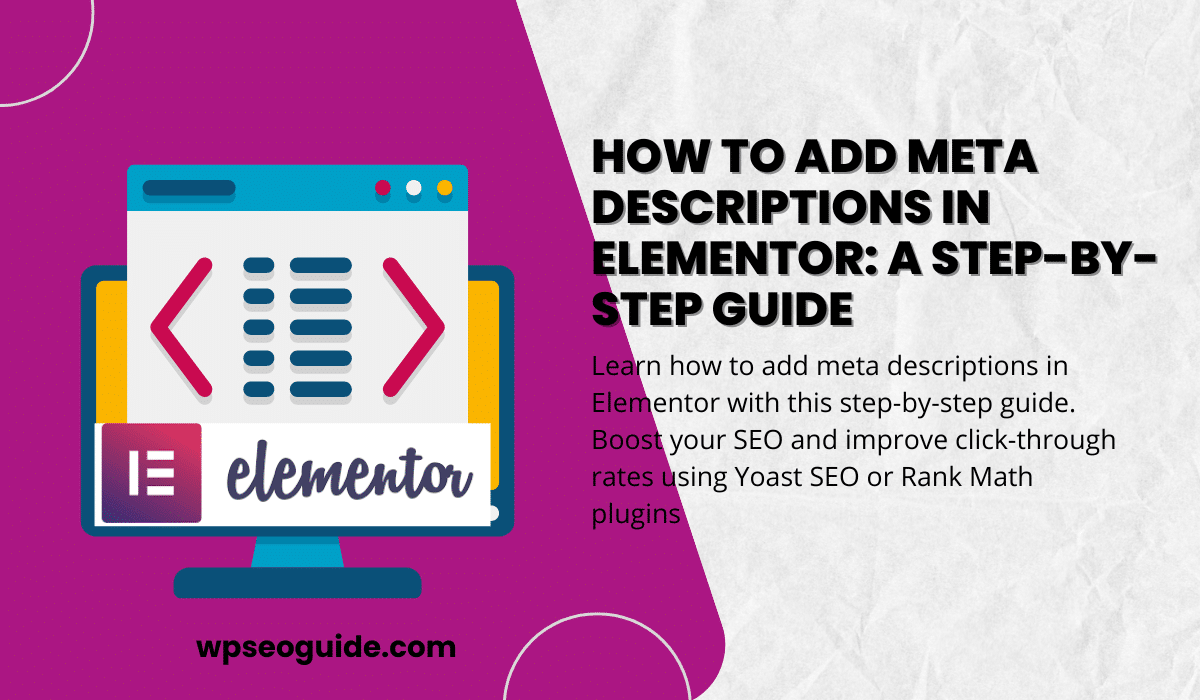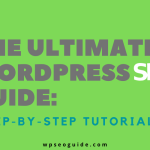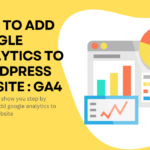Meta descriptions are essential for SEO, providing a brief summary of your page content that appears in search engine results. A well-crafted meta description can significantly boost your click-through rate (CTR) and improve overall SEO performance. If you’re using Elementor to build your WordPress site, you might be wondering how to add meta descriptions to your pages. This guide will walk you through the process step by step.
Why Are Meta Descriptions Important?
Before diving into the tutorial, it’s important to understand why meta descriptions matter:
- Improved Click-Through Rates (CTR): A compelling meta description encourages users to choose your link over others.
- Enhanced SEO: While not a direct ranking factor, meta descriptions influence user behavior, which can indirectly affect your rankings.
- Better User Experience: They give users a preview of your content, helping them decide whether your page meets their needs.
Adding Meta Descriptions in Elementor
Elementor doesn’t have a built-in feature for adding meta descriptions, but you can easily add them using an SEO plugin like Yoast SEO or Rank Math. Below are the steps for both plugins.
1. Using Yoast SEO Plugin
Yoast SEO is one of the most popular SEO plugins for WordPress, seamlessly integrating with Elementor.
Step 1: Install and Activate Yoast SEO
- Navigate to
Plugins>Add New. - Search for “Yoast SEO.”
- Click
Install Nowand thenActivate.
Step 2: Edit Your Page with Elementor
- Go to the page you want to edit and click
Edit with Elementor.
Step 3: Open Yoast SEO Settings
- Once the Elementor editor loads, scroll down to the bottom of the page. You’ll find the Yoast SEO section below the Elementor editor.
- Click on the
SEOtab.
Step 4: Add Your Meta Description
- In the Yoast SEO panel, locate the
Meta descriptionfield. - Write a concise, engaging meta description that includes your primary keyword.
- Yoast will show a green bar when your meta description is well-optimized.
Step 5: Update Your Page
- After you’re satisfied with your meta description, click
Updateto save your changes.
2. Using Rank Math SEO Plugin
Rank Math is another excellent SEO plugin that integrates well with Elementor.
Step 1: Install and Activate Rank Math
- Go to
Plugins>Add New. - Search for “Rank Math SEO.”
- Click
Install Nowand thenActivate.
Step 2: Edit Your Page with Elementor
- Navigate to the page you wish to edit and select
Edit with Elementor.
Step 3: Open Rank Math Settings
- After the Elementor editor loads, scroll down to find the Rank Math SEO options under the Elementor editor.
- Click on the
Generaltab.
Step 4: Add Your Meta Description
- In the
Meta Descriptionfield, input your description. Rank Math will provide a preview of how it will look in search results. - Ensure your description is within the recommended length and includes relevant keywords.
Step 5: Save Your Changes
- Once you’re done, click
Updateto save your changes.
Tips for Writing Effective Meta Descriptions
- Keep It Concise: Aim for 150-160 characters.
- Use Active Voice: Write in a way that encourages action.
- Incorporate Keywords: Naturally include your main keyword.
- Provide Value: Summarize what users will gain from visiting your page.
- Make It Unique: Avoid duplicating meta descriptions across different pages.
Conclusion
Adding meta descriptions in Elementor is straightforward with a robust SEO plugin like Yoast SEO or Rank Math. By crafting well-optimized meta descriptions, you can enhance your site’s SEO performance and attract more visitors. Remember, your meta description is often the first impression users get of your content, so make it count!






[…] role here by automating various aspects of on-page optimization. For example, AI can generate and optimize meta tags based on your page’s content, ensuring they’re both relevant and compelling. AI tools can also […]